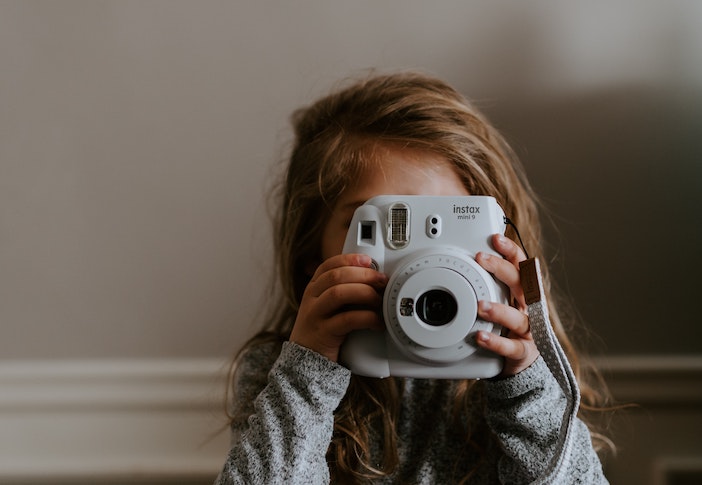If you have a running internet connection and don’t live under a rock, chances are you part of at least one social network. So the question is not if to use social media, but how. And more to the point, how should we be protecting the privacy of our children, who (but should) have control over what we post about them.
Naturally, as parents, we take precautions to protect our children: We endlessly caution them on ‘stranger danger’, online safety, and how to be alert for people with bad intentions. I monitor my daughter’s Amazon Fire tablet and iPad like a hawk, controlling everything she’s watching and everyone she may be chatting with.
When it comes to social media, most of us post pictures on our social media accounts and we shouldn’t necessarily apologize for this. We are adults and we take these conscious choices about what we post. But when it comes to children of non-consent age, a line has to be clearly drawn.
With our first daughter, I’ve been guilty in the past about posting pictures of her on my own social media account. I shared and updated baby bump pictures, our birth announcement, holidays, her first-year party, and other pictures. Until one day, I was ‘digitally kidnapped’, an experience that totally changed my perspective on social media. I was with a mama friend in Belgium, who wanted to view a picture on my Facebook account. She opened the app, then asked me “which of my two accounts” to view. “Two accounts?” I asked, puzzled. There it was – a clone of my account, down to the name and almost all of the pictures I’d ever posted. Someone was impersonating me on Facebook.
The ‘kidnapper’ had used all of the pictures of my daughter, and strangers were liking and commenting on them. I could hardly believe what I was seeing. Needless to say, I promptly reported the account to Facebook and it was closed. But that was enough for me to ask myself what the heck I was thinking in the first place, posting pictures of my child who had no clue some random people were viewing her pictures.
I closed my Facebook account and for a while, I went off social media completely (and what a really quiet nice time that was). I’ve since gone back on a few social media platforms but I use them strictly for professional reasons and I don’t post pictures of my children.

A picture is worth a thousand words, but does every moment of your life really need to be shared online?
Four good reasons not to share pictures of your children online
- Posting specific information about your child online, like their full name, age or school puts them at risk of being kidnapped. If a stranger knows all this information, it will be easy for them to locate your child.
- There are many cases in which innocent photos and videos have made their way to explicit adult-oriented, pornographic sites. Furthermore, with today’s technology, reality can be distorted. Most of us have seen the deep-fake pictures and videos that are so high tech you can’t tell what’s real anymore. Imagine your child’s face being superimposed on another person’s body… the damage is done.
- You may think that your account is set to private or to only-friends makes it safe but this doesn’t prevent those pictures you share being re-distributed amongst friends of your friends’ friends.
- Finally, some believe that Flaunting your family and its supposed perfect-ness to all and sundry may attract wrong “energy”, which actor Priyanka Chopra describes as the Evil Eye. “Beware of it and if possible, take care of your precious ones, or else someone out there is waiting to be in your place”. Remember, social media fame is like being rich in Monopoly. There’s nothing real about it.
It’s little wonder that the possibility of kids being able to sue parents for having shared their image without their consent is becoming a real prospect.
Ways to share images safely
If you really desperately want to share pictures of your children, here are a few tips to doing it safely:
- Create a private album on a cloud drive and share it with only trusted family and friends, ensuring they know not to distribute the photos anywhere else.
- If you share on social media, don’t share your location.
- Although this is not a sure way to avoid pictures ending up in the wrong hands, try to set up your privacy controls before you share pictures so you can limit who can view the pictures.
- Avoid posting pictures of your children in bathing suits or in the bath tab, even on accounts you think are for only “friends and relatives”.
This isn’t limited to Instagram and Facebook, but includes all kinds of social networks including WhatsApp and WeChat. I recently got a WhatsApp message from a relative who had set her profile picture to a pic of my daughter. When I asked her where she’d got the picture and why she had it on as her profile picture, she jovially announced she had taken a screenshot of it when I had it on as my profile picture. Now her friends and their friends could easily do the same and I had absolutely no control over it.
Social networking sites and tech companies must take a big portion of responsibility and blame for nefarious online activities, as do legislators. Although they do their best and employ hundreds of people to review content to make sure it is safe, it’s still alarming how much heinous content gets through the cracks.
This isn’t about preventing anyone from posting anything online about their children. It’s to educate yourself and your children about the darker side of social media and take some necessary steps in ensuring online safety for your family and loved ones, especially the young ones. Technology is an amazing thing and the power of social media, when used correctly, is undoubtedly hugely beneficial to individuals and companies.
So, the next time you are ‘oversharenting’ (oversharing about your children on social media) or cross-posting (posting the same pictures simultaneously on your different social networking platforms) pictures of your adorable chubby cheek cutie, you may want to rethink … not everyone is looking at them with the same lens.
These days, instead of spending hours posting pictures of my kids on social media, I dance with them like no one is watching, because frankly, no one is watching: everyone’s busy on their phones, posting on social media.
Pearl Kasujja-Van de Velde is a dual Ugandan/Belgian national, a mother to two amazing girls, a wife, and a storyteller. To get in touch, visit her website at www.pearlkasujja.com.
KEEP READING: The Impact of Birth Order on Parenting Styles and Children’s Personalities
Photos: Unsplash






1 Comment
Pingback: Smile Child, You’re On Social Media! – Pearl Kasujja